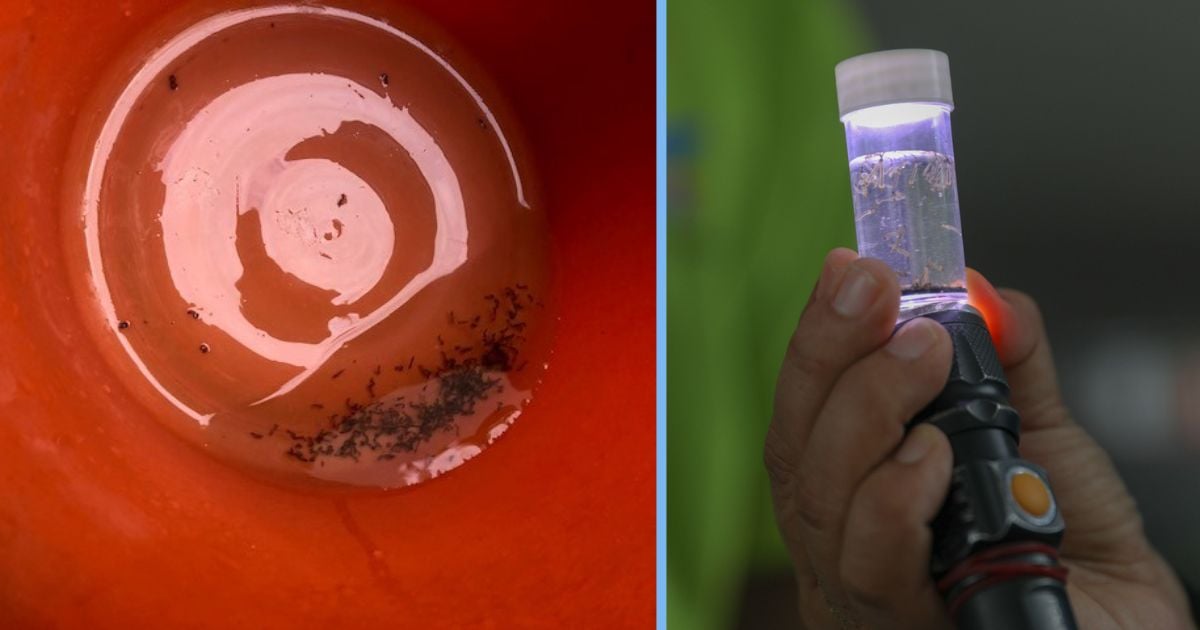As of February 14, 2024, Singapore has recorded over 2,600 dengue cases. Weekly cases have also surged, doubling compared to December 2023.
Most notably, the National Environment Agency (NEA) revealed that there were 515 cases reported in the week ending 10 February 2024.
The consistent escalation over the past ten weeks is likely spurred by heightened disease transmission in regions with dense Aedes mosquito populations.
Additionally, Singapore’s overall low herd immunity to all four Dengue virus serotypes exacerbates the situation.
High Number of Mosquito Breeding Cases in Homes in 2023
In homes, mosquito breeding was detected in domestic containers like pails, flower pot plates and trays, and ornamental containers like vases.
Moreover, NEA has also found mosquito breeding sites in ground puddles and canvas sheets at construction sites.
In public areas, drains and discarded receptacles are common breeding grounds for mosquitoes.
In the Boon Lay area, NEA has detected 174 instances of mosquito breeding, 101 of which were found in residential premises, and mosquito breeding was continuously detected more than three months after the dengue cluster was formed.
In particular, a home was found with extremely active mosquito breeding in two mop pails, containing over 100 and 900 mosquito larvae each.
Similarly in the Pasir Ris area, NEA detected 90 instances of mosquito breeding, of which 62 were found in homes. In particular, in December 2023, a residential premises was found with profuse mosquito breeding of about 100 larvae in a pail.
Another premises was found with three instances of mosquito breeding in a bucket cover, basket, and flowerpot.
In September 2023 during an inspection by NEA, a construction site at Club Street was found with multiple mosquito breeding in water tanks, a scupper drain, and a road cutter machine.
Following the inspection, a Stop Work Order (SWO) was issued to the contractor – M/S Tiong Seng Contractors – on 8 September 2023. However, the contractor was found to have not complied with the SWO on three occasions in October 2023.
In November 2023, mosquito breeding was detected once more at the same site at Club Street. M/S Tiong Seng Contractors has been charged in court and fined S$217,500 for the multiple offences.
NEA has and will continue to implement stringent enforcement measures against non-compliant property owners who impede its officers from conducting dengue inspection duties.
During an inspection in July 2023 at Rivervale Drive, an NEA inspection officer detected mosquito breeding in a porcelain pot. When NEA attempted to collect samples, the owner turned aggressive and attempted to destroy the evidence.
The owner was subsequently charged in court and fined S$1,000 for obstructing NEA officers in their duties.
NEA states that all stakeholders, including homeowners, managing agents, and construction companies, bear responsibility in vector control efforts. They emphasise the pivotal role of the construction industry in mitigating dengue transmission.
NEA urges construction firms to uphold rigorous housekeeping standards, effective refuse management practices, and regular pest control checks and treatments. These measures are essential to safeguarding the well-being of workers and visitors against the threat of dengue fever.
In order to curb excessive breeding of the Aedes mosquito, NEA urges citizens to make use of the ‘B-L-O-C-K’ strategy:
- Break up soil
- Lift and empty flower pot plates
- Overturn pails, wiping rims
- Change vase water
- Keep gutters clear, use BTI insecticide
Residents, especially those living in dengue cluster areas, are also urged to adopt ‘S-A-W’ protective measures:
- Spray insecticide
- Apply repellent
- Wear long-sleeve tops and long pants
Individuals diagnosed with or suspected to be infected with dengue are strongly advised to take precautions and follow the S-A-W measures to prevent passing on the Dengue virus to mosquitoes and other people in their neighbourhoods.
NEA encourages stakeholders to monitor dengue updates via its website and myENV mobile app, offering alerts on dengue clusters and Aedes aegypti hotspots.
In the battle against dengue, collective action and heightened vigilance are paramount to safeguarding public health and well-being.
